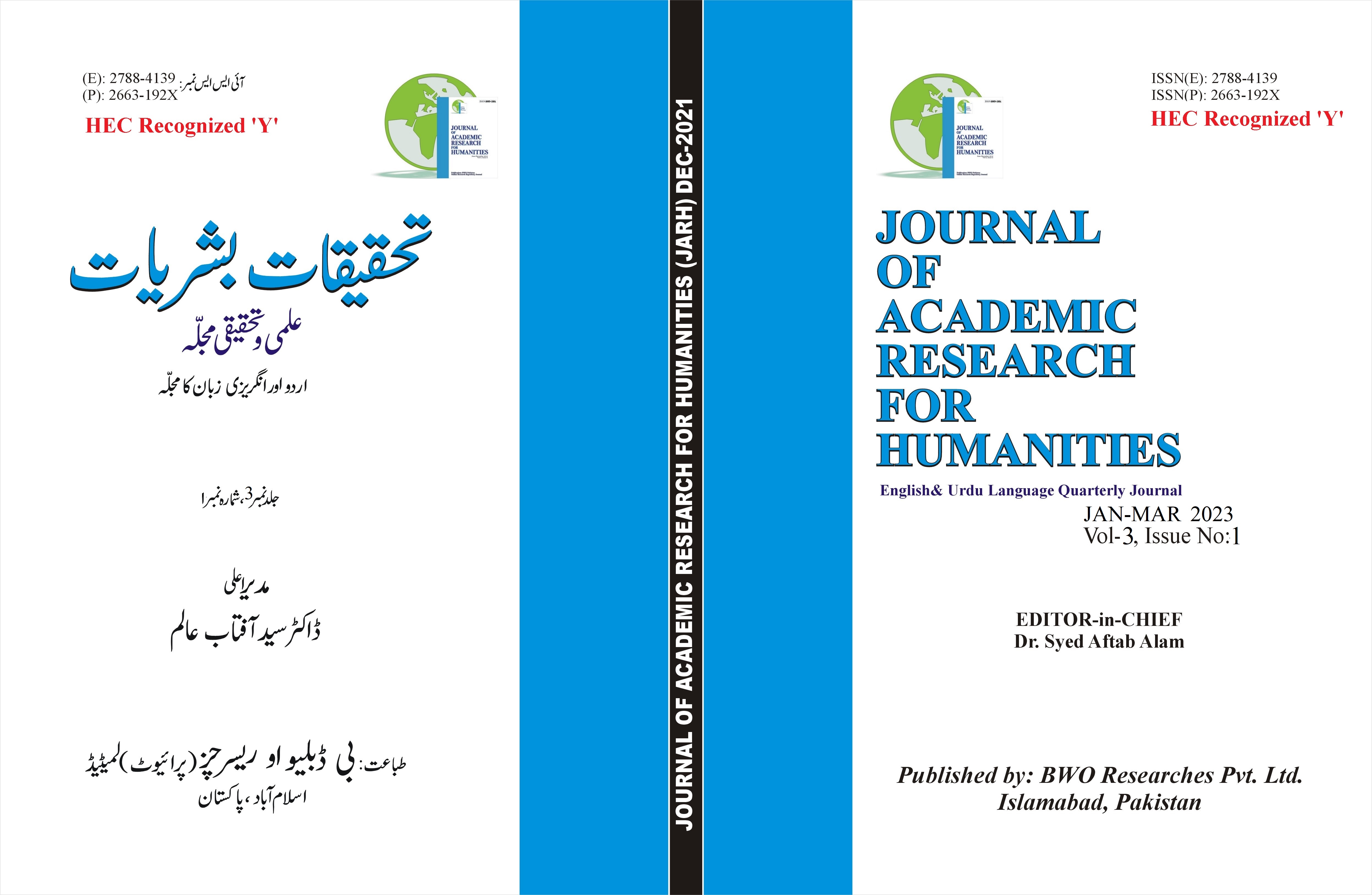Issues, Challenges, and Strategies of Language Learning for Dyslexic Students in the Private Schools of Rahim Yar Khan

Abstract
Children who have dyslexia have trouble reading and sometimes having trouble writing; however, rather than finding a solution or strategies to their problems, we find it easy to label these children with different labels such as "slow learners" or "duffers," which only serves to make the problems worse over time. The problem is not as serious as it once was in many countries today; however, in Pakistan, and more specifically in Rahim Yar Khan, it was discovered during the survey that the majority of the rectors consider dyslexia to be an incurable disease. As a result, private schools do not pay a lot of attention to the provision of a quality education to students. This research was necessary because it was necessary to discover the root cause of the issues and challenges faced by the dyslexic students in the process of learning language, to give awareness to the teachers, parents, and any other related people of the struggles of the dyslexics, and to formulate strategies that would help them tackle the problems. Both qualitative and quantitative data were collected for this investigation. In order to discover the responses to the study questions, the researcher employed a questionnaire as a research instrument. Statistical Package for Social Sciences was used to do the analysis on the statistically gathered data (SPSS).
Keywords
Dyslexia, dyslexic students, reading issues, writing issues, learning
References
- Bonilla-Warford, N., & Allison, C. (2004). A Review of the Efficacy of Oculomotor Vision Therapy in Improving Reading Skills. Journal of Optometric Vision Development, 35(2).
- De Brauwer, J., Meersschaert, E., Aerts, A., Van Kerckhove, E., & Geudens, A. (2013). Effective support and coaching of young adults with dyslexia: Results of a qualitative and quantitative study. All-European Dyslexia Conference of the European Dyslexia Association, Location: Växjö, Sweden,
- Elbeheri, G., & Everatt, J. (2012). Dyslexia and IQ: From research to practice. In The Routledge companion to dyslexia (pp. 44-54). Routledge.
- Humphrey, N., & Mullins, P. M. (2002). Self‐concept and self‐esteem in developmental dyslexia. Journal of Research in Special Educational Needs, 2(2), no-no.
- Hunter-Carsch, M., & Herrington, M. (2001). Dyslexia and effective learning in secondary and tertiary education. John Wiley & Sons Incorporated.
- Johnson, M. (2004). Dyslexia friendly schools: policy and practice. Dyslexia in Context: Research, Policy and Practice, 237-256.
- Kerr, H. (2001). Learned helplessness and dyslexia: a carts and horses issue? Reading, 35(2), 82-85.
- Rontou, M. (2010). Provision for students with dyslexia in EFL: an ethnographic case study University of Birmingham].
- Whitford, V., O'Driscoll, G. A., & Titone, D. (2018). Reading deficits in schizophrenia and their relationship to developmental dyslexia: A review. Schizophrenia research, 193, 11-22.
- Wigelsworth, M., Humphrey, N., Kalambouka, A., & Lendrum, A. (2010). A review of key issues in the measurement of children’s social and emotional skills. Educational Psychology in Practice, 26(2), 173-186.